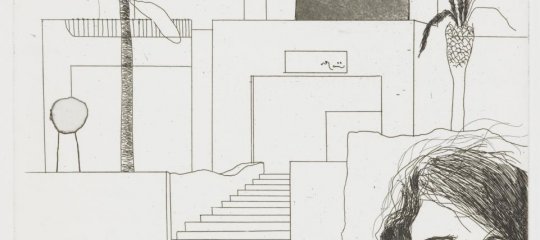10ο ΔΙΕΘΝΕΣ ΣΥΝΕΔΡΙΟ ΜΕΤΑΝΑΣΤΕΥΣΗ, ΕΛΛΗΝΙΚΑ ΩΣ ΔΕΥΤΕΡΗ Ή ΞΕΝΗ ΓΛΩΣΣΑ & ΔΙΑΠΟΛΙΤΙΣΜΙΚΗ ΕΚΠΑΙΔΕΥΣΗ
Συνεδριακό & Πολιτιστικό Κέντρο Πανεπιστημίου Πατρών:6 -8 Ιουλίου 2007ΠΑΝΕΠΙΣΤΗΜΙΟ ΠΑΤΡΩΝ – ΠΑΙΔΑΓΩΓΙΚΟ ΤΜΗΜΑ ΔΗΜΟΤΙΚΗΣ ΕΚΠΑΙΔΕΥΣΗΣ
ΚΕΝΤΡΟ ΔΙΑΠΟΛΙΤΙΣΜΙΚΗΣ ΕΚΠΑΙΔΕΥΣΗΣ
10ο ΔΙΕΘΝΕΣ ΣΥΝΕΔΡΙΟ
ΜΕΤΑΝΑΣΤΕΥΣΗ, ΕΛΛΗΝΙΚΑ ΩΣ ΔΕΥΤΕΡΗ Ή ΞΕΝΗ ΓΛΩΣΣΑ
ΚΑΙ ΔΙΑΠΟΛΙΤΙΣΜΙΚΗ ΕΚΠΑΙΔΕΥΣΗ
Συνεδριακό & Πολιτιστικό Κέντρο Πανεπιστημίου
Πατρών
6 -8 Ιουλίου 2007
Αξιότιμοι κύριοι,
Το Κέντρο Διαπολιτισμικής Εκπαίδευσης διοργανώνει το 10ο Διεθνές Συνέδριο με θέμα «Μετανάστευση, Ελληνικά ως δεύτερη ή ξένη γλώσσα και Διαπολιτισμική εκπαίδευση», που αποτελεί συνέχεια των εννιά προηγούμενων επιτυχημένων Συνεδρίων. Κύριος ΣΤΟΧΟΣ του Συνεδρίου είναι η διάδοση της ελληνικής γλώσσας και του ελληνικού πολιτισμού πέρα από τα όρια του ελλαδικού χώρου μέσα από μια ουσιαστική προσέγγιση θεμάτων της Διαπολιτισμικής Εκπαίδευσης και της διδασκαλίας της ελληνικής γλώσσας ως δεύτερης ή ξένης, με ιδιαίτερη έμφαση στην παρουσίαση ερευνητικών ανακοινώσεων.
Οι ΘΕΜΑΤΙΚΕΣ ΕΝΟΤΗΤΕΣ (αναλυτική παρουσίαση στην ιστοσελίδα: www.kedek.gr ) είναι οι εξής:.• Το φαινόμενο της σύγχρονης μετανάστευσης Ελλήνων και Αλλοδαπών.• Διεθνή μεταναστευτικά ρεύματα.• Μεταναστευτική πολιτική.• Καταγραφή της ελληνικής παρουσίας μεταναστών (Αφρική, Λατινική Αμερική, Αυστραλία, Πόντος, Β. Αμερική, Δυτική Ευρώπη, Κάτω Ιταλία) και σε άλλα μέρη του κόσμου .• Μορφωτικά προγράμματα της Ελλάδας με χώρες του εξωτερικού.• Θεωρητικές προσεγγίσεις στη Διαπολιτισμική Εκπαίδευση .• Ερευνητικές προσεγγίσεις στο χώρο της Διαπολιτισμικής Εκπαίδευσης.• Η διδασκαλία της ελληνικής σε αλλοδαπούς και παλιννοστούντες μαθητές στην Ελλάδα .• Θεωρητικές προσεγγίσεις στη Διδακτική της ελληνικής ως δεύτερης ή ξένης γλώσσας.• Ερευνητικές προσεγγίσεις στη Διδακτική της ελληνικής ως δεύτερης ή ξένης γλώσσας .• Η ελληνόφωνη εκπαίδευση στο εξωτερικό – Ελληνόφωνες μονάδες, Στατιστικά δεδομένα • Εκπαιδευτική πολιτική για την ελληνική γλώσσα και τη διάδοσή της στο εξωτερικό.• Υπογεννητικότητα στην Ελλάδα και Διαπολιτισμική Εκπαίδευση.• Διοίκηση σχολικών μονάδων και Διαπολιτισμική Εκπαίδευση.• Διαπολιτισμική Κοινωνική Ψυχολογία.Προσδοκούμε από τους εισηγητές και κυρίως τους εκπαιδευτικούς της αλλοδαπής και της ημεδαπής να ασχοληθούν με καινοτόμες ερευνητικές τεχνικές όπως μελέτη περίπτωσης και έρευνα-δράση, έτσι ώστε να γίνει ο Συνεδριακός θεσμός πιο ουσιαστικός όσο αναφορά την παροχή συγκεκριμένης γνώσης, πρακτικής εφαρμογής, μεθόδων και διαδικασιών. Το ΣΥΝΕΔΡΙΟ ΑΠΕΥΘΥΝΕΤΑΙ σε πανεπιστημιακούς, προπτυχιακούς και μεταπτυχιακούς φοιτητές, στελέχη εκπαίδευσης, εκπαιδευτικούς Α’/θμιας και Β’/θμιας εκπαίδευσης από την Ελλάδα και το εξωτερικό, ερευνητές, στελέχη τοπικής αυτοδιοίκησης και σε κάθε ενδιαφερόμενο. Γλώσσα του Συνεδρίου είναι η Ελληνική.Το ΚΟΣΤΟΣ ΣΥΜΜΕΤΟΧΗΣ για τους ακροατές και τους εισηγητές του συνεδρίου είναι 60 Ευρώ και για τους φοιτητές 30 Ευρώ. ΠΡΟΤΑΣΕΙΣ ΓΙΑ ΑΝΑΚΟΙΝΩΣΕΙΣ: Οι ενδιαφερόμενοι θα πρέπει να στείλουν μέχρι τις 15 Μαΐου 2007: 1) έντυπο συμμετοχής, 2) ολόκληρο το κείμενο της ανακοίνωσής τους, έτοιμο προς δημοσίευση, σε ηλεκτρονική μορφή (δισκέτα ή e-mail), το οποίο δε θα ξεπερνά τις 8 σελίδες Α4 (μαζί με τη βιβλιογραφία) σε γραμματοσειρά: Times New Roman Greek, 12 pt. – διάστιχο μονό, 3) περίληψη στα αγγλικά 10-15 σειρές, 4) σύντομο βιογραφικό σημείωμα μέχρι 10 γραμμές. Κείμενα ανακοινώσεων που θα παραδοθούν μόνο σε έντυπη μορφή δε θα γίνουν αποδεκτά Οι ανακοινώσεις θα πρέπει να είναι πρωτότυπες, δηλαδή να μην έχουν παρουσιαστεί ή δημοσιευτεί. Όλες οι εργασίες θα κριθούν από την Επιστημονική Επιτροπή και οι εισηγητές θα ενημερωθούν εγκαίρως.
ΔΗΛΩΣΕΙΣ ΣΥΜΜΕΤΟΧΗΣ ΓΙΑ ΤΟΥΣ ΑΚΡΟΑΤΕΣ: Οι δηλώσεις συμμετοχής για τους ακροατές θα γίνονται αποδεκτές μέχρι τις 30 Ιουνίου 2007ΠΕΡΙΣΣΟΤΕΡΕΣ ΠΛΗΡΟΦΟΡΙΕΣ στο πλήρες κείμενο της ανακοίνωσης στην ιστοσελίδα μας (www.kedek.gr) Ο Πρόεδρος της Οργανωτικής ΕπιτροπήςΠαντελής Γεωργογιάννης - Καθηγητής
Για την ενημέρωση, ευχαριστούμε την Ταμάρα Κόστιτς - Παχνόγλου (Νις, Σερβία)










